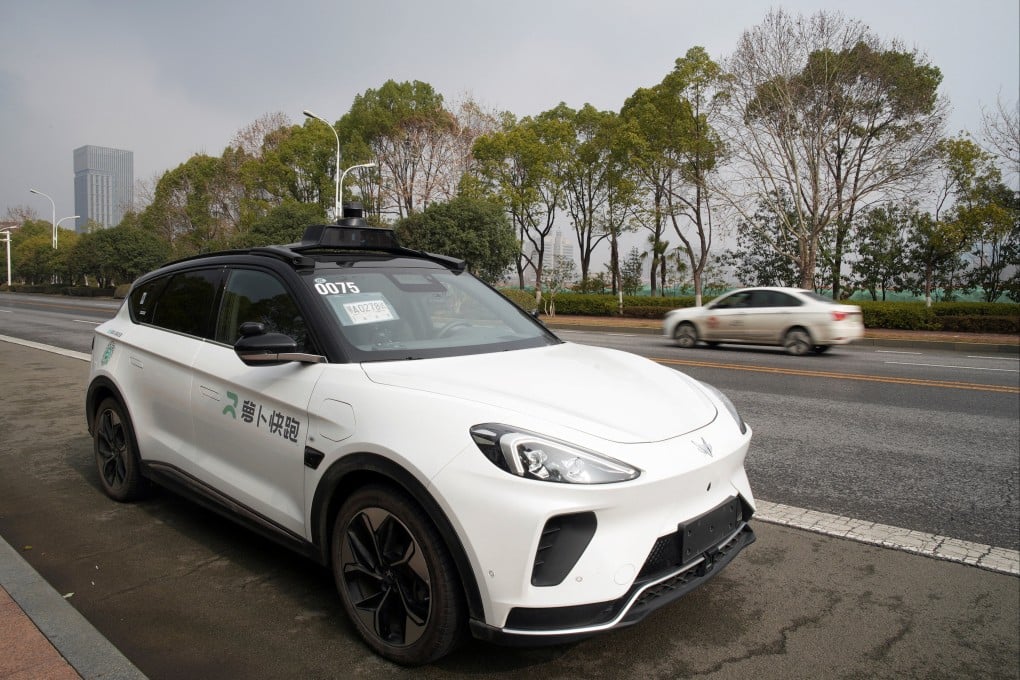Baidu robotaxis draw complaints from human drivers as service gains popularity
- Local taxi drivers are petitioning Wuhan’s transport authority to limit the use of Apollo Go in the city of over 13 million

A fleet of more than 500 driverless taxis operated by Baidu’s autonomous-driving unit in Wuhan, capital of central Hubei province, is quickly gaining customers despite vocal complaints from locals and taxi drivers, showing the complications of providing such services in an urban area.
The Apollo Go service, launched in August 2022, has become so popular in the city of 13.7 million that local taxi drivers are petitioning the municipal transport authority to limit its use.
A letter sent in late June by Wuhan Jianshe Automotive Passenger Transportation, a local operator, said four of its 159 taxis had quit since April due to declining income, according to a report by the Southern Weekly newspaper. The company accused robotaxis of “taking jobs from the grass roots”.
Baidu did not immediately respond to a request for comment on Tuesday. The company said in May that it reported to the police several cases related to the spreading of misinformation about Apollo Go on social media, and more than 10 suspects were arrested.
The Beijing-based artificial intelligence giant expects Apollo Go to expand its Wuhan fleet to 1,000 vehicles and break even locally by the end of this year, Chen Zhuo, general manager of Baidu’s self-driving unit, said recently.